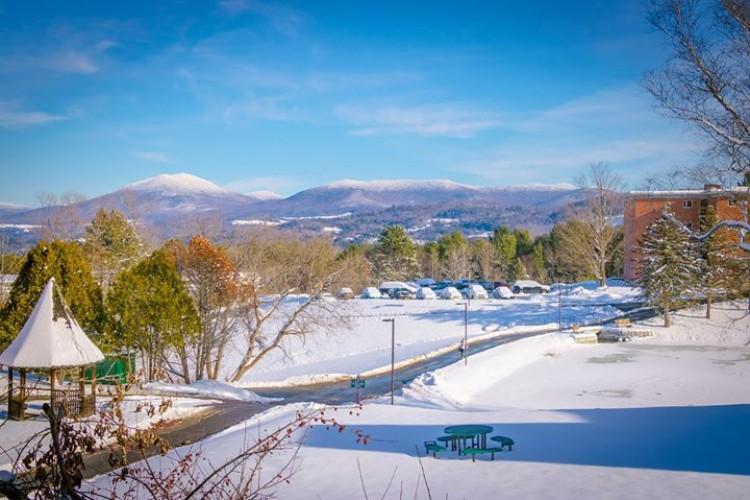Northern Vermont Colleges Avoid Possible Shutdown
May 4, 2020
Written by Rachael Pellegrini|
Photos by Northern Vermont University|
Vermont’s state colleges have been suffering from a decrease in enrollment and prolonged underfunding for the past few years. To approach the deficit that the Coronavirus Pandemic has caused, a plan was proposed by the Vermont State College System Chancellor Jeb Spaulding to close both Northern Vermont University campuses and move their programs to Castleton University. The plan also included downsizing Vermont Technical College to one campus. It is anticipated that enrollment will drop 15-20% next year, producing additional budget deficits to Vermont State Schools. Fortunately, the plan led to the Chancellor’s resignation and an announcement today, Monday, May 4th that the state legislation is prepared to support all the state colleges. State college officials are encouraging students to enroll.

Both Northern Vermont campuses and The Vermont Technical College Randolph Center are key to the communities that they surround, playing an important role in the Vermont economy. Without them, this could cause irreversible damage to local economies within the state. According to a study by Northern Vermont University, its two campuses alone contribute to about $113 million to the economy in the Lyndon and Johnson areas.
These small colleges provide economic opportunity for students and a chance at higher education, with well-developed programs unique to its specific campus. NVU-Lyndon’s nationally renowned atmospheric sciences program creates the opportunity for students to pursue meteorology, weather, and climate by participating in many hands-on experiences.
Northern Vermont University provides a chance for students to attend classes with smaller numbers, creating more connections with their professors and peers. Current NVU- Lyndon student, Patrick Wickstrom stated, “It was my dream to attend Lyndon because of the quality of its Atmospheric Sciences Department. I knew that going to a smaller school far from home was right for me.”

Colleges attract several thousand visitors a year, with these visitors spending money not only in the towns of Randolf, Johnson, and Lyndon but the surrounding towns as well. For these towns, the closing of these local colleges would mean fewer public services and higher sewer and water bills.
Eric Osgood, the select board chairman said, “There’s a lot of trickle-down; the loss of these colleges is huge.” Local businesses are already facing a difficult time being closed to the virus, and some may not recover. As for hotels, mountain resorts, and other businesses in these areas, they rely on the students attending these colleges to work for them.
Supporting small schools not only benefits the students attending but also the surrounding towns and economies. After graduation, many students apply for jobs in the area where they attended college. Local housing and businesses depend upon these colleges. If these colleges shut down, businesses would be struggling to stay open and town populations would show a dramatic decrease.
Many colleges are suffering because of the pandemic and the declining population of young people. According to the NY Times, “The pandemic hit when American higher education which employs about three million people nationwide, was already suffering from financial problems.” Vermont colleges are not the only institutes of higher learning suffering financially during these difficult times. Fortunately, the state legislature and college communities are supporting the programs at all of the Vermont campuses.







